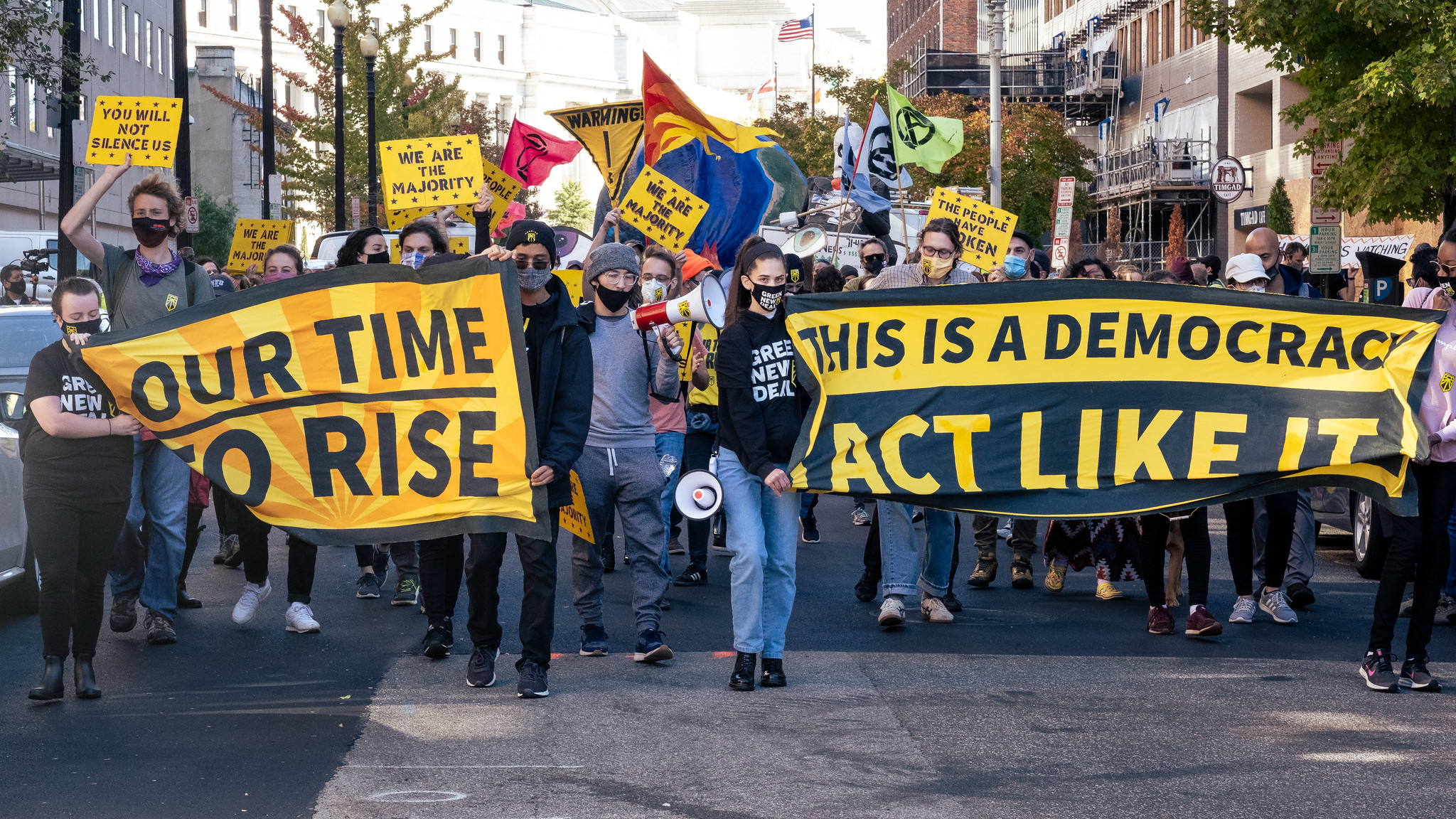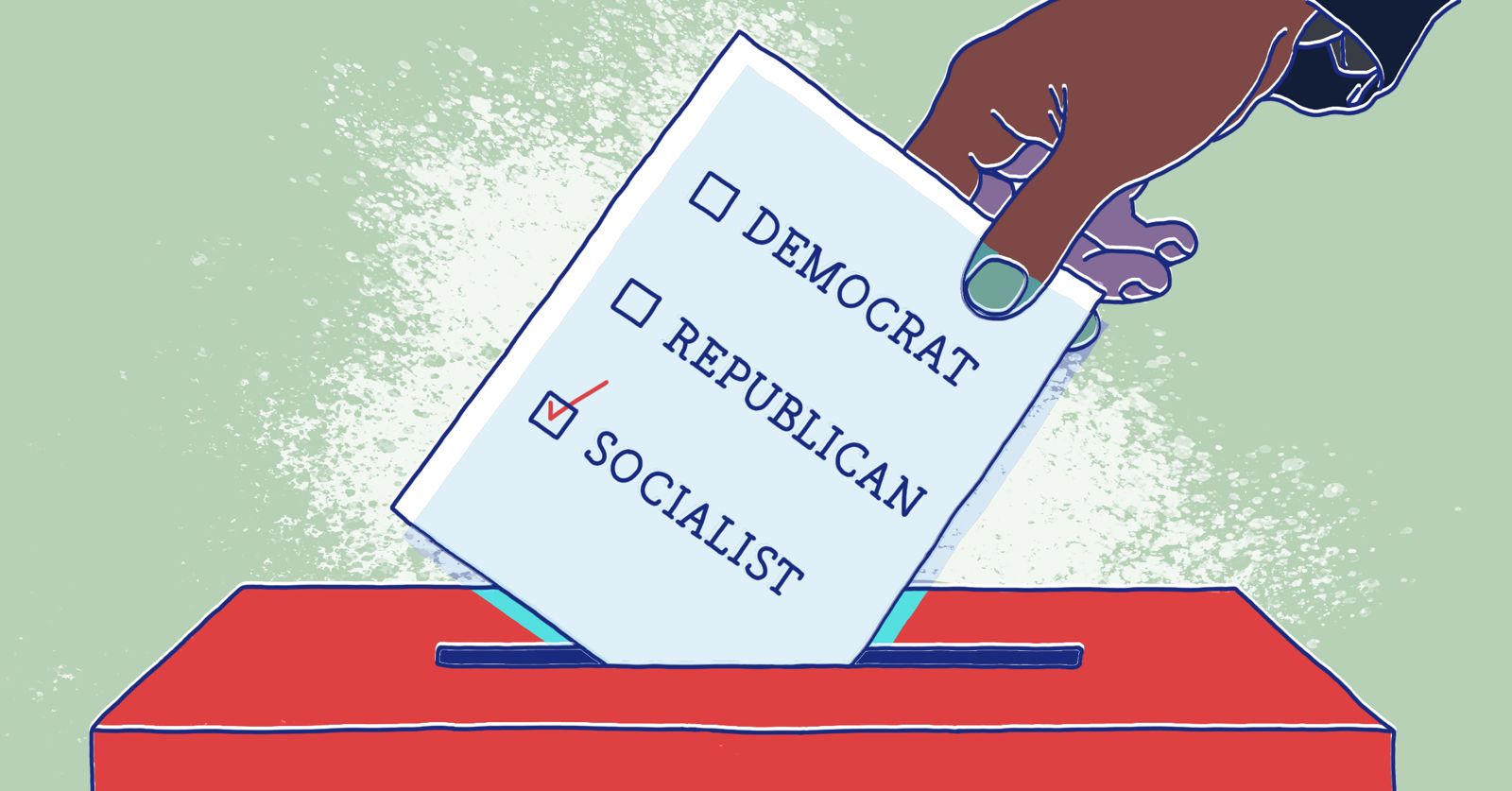As socialist politics emerges from its decades-long marginalization in the United States, our movement is faced with a number of important political challenges. One of the most important challenges is how socialists can use electoral politics to build power while avoiding the trap of co-optation.
One point is resolved: Electoral campaigns can build long-term organization. The continued growth of DSA over the past three years has been inextricably linked to the rise and success of democratic socialist candidates and office-holders like Bernie Sanders, Alexandria Ocasio-Cortez, Rashida Tlaib, Julia Salazar, and the six DSA members who are now elected aldermen in Chicago. And their election has the potential to further develop a large group of officeholders who can spread our message and build momentum.
Building a mass movement for democratic socialism in 2020 and beyond necessitates contesting elections. But socialism won’t be delivered top-down by sympathetic politicians. Further, we cannot simply fight for the “lesser of two evils” approach pushed by those committed or resigned to accepting the domination of the neoliberal Democratic Party.
Since DSA’s rebirth in 2016, the organization has taken important steps towards developing an electoral strategy that is both successful and oriented towards building movements, not individual candidates. In early 2018, DSA’s National Political Committee adopted a National Electoral Strategy, expanding on the priorities resolution passed at the 2017 National Convention. The strategy adopted four main principles.
- Locals will have the authority to choose their own electoral strategies.
- The National Electoral Committee will be elected, transparent, and accountable, and its primary role will be to support locals in their electoral work through skills building.
- The NEC will focus on helping to build each chapter’s capacity to create independent electoral structures and facilitating cross-local collaboration and communication.
- Electoral work, as only one aspect of building power, will to the greatest extent possible be the natural extension of other local campaigns around issues like housing, racial justice, mutual aid, etc.
At the 2019 DSA National Convention, questions about electoral strategy will again be on the agenda. While allowing for the possibility that chapters may need to endorse candidates that would not win a DSA endorsement in other parts of the country, members rightly want the chance to debate what kind of campaigns we support as National DSA. Resolution 31 (“Class Struggle Elections”), submitted by members of DSA’s Bread & Roses caucus who have played leading roles in electoral work in East Bay and Chicago, is our contribution to this debate.
Resolution 31 builds upon and refines the 2018 National Electoral Strategy by laying out four criteria that all nationally endorsed DSA candidates should meet.
- Openly identify as socialists
- Through their election campaigns, and once in office, see mobilizing and fighting alongside working-class people as one of their primary responsibilities: They will use their public profile to popularize a class-struggle perspective, one that sees the working class as the agents of change and capitalists and capitalist politicians as the main barrier to change.
- Actively and explicitly oppose racial, national, gender, and other forms of oppression and discrimination and repudiate support from oppressive or bigoted figures
- Commit to using their campaigns and elected offices to help build and unite socialist, union, and other working-class organizations and militancy independent of candidates’ campaigns and of the Democratic Party
We call the kind of candidates who would meet these criteria “class-struggle candidates.” We want to endorse those candidates who will use their office as a platform to organize. The criteria are not restrictive, but the framing of a “class-struggle electoral strategy” provides DSA on a national level with a tool to evaluate candidates based on an assessment of their commitment and ability to help build our movement.
Bernie Sanders has shown us what it looks like to be a class-struggle politician. He walks picket lines and uses his networks to turn out supporters to strikes. The legislation he puts forward pressures corporations to raise their minimum wage and allow workers to organize. His campaign is building an independent media infrastructure. And his speeches popularize to packed auditoriums a message that identifies the enemy of the working class as the billionaires and corporations, raising the expectations of working-class people and inspiring millions to take action in their workplaces or run for office themselves. One only needs to look to West Virginia, where activists inspired in part by Bernie Sanders’s 2016 campaign helped launch a massive national teachers’ strike wave, to see how this strategy can work in practice.
The 2020 and 2022 elections give DSA the opportunity to endorse a group of class-struggle candidates who are capable not only of running for office but also using their races and platforms to advance the cause of democratic socialism and a revived workers movement. Without clear criteria for our endorsed candidates, however, DSA will miss its opportunity to use these pivotal elections to develop a coherent group of affiliated candidates.
Resolution 31 also solidifies our commitment to build independent political power, separate from the Democratic Party and its donors. To build this power, DSA must create a pipeline for recruiting working-class tribunes to run for office. Building power independent of the Democratic Party does not rule out DSA-endorsed candidates running on the Democratic Party line, but it does require recognizing that the Democratic Party is a party of the ruling elite and not the working class. In the long run, therefore, Resolution 31 also commits DSA to working with other allies to build a new party of the working class, one independent of, and committed to fighting against, the Democratic Party.
Today, DSA has a strong national electoral strategy oriented towards supporting local chapters to run powerful electoral campaigns. This is an important foundation, but our work does not end there.
We are the largest U.S. socialist organization in a lifetime and we must take up the task handed to us by generations of socialists to build working-class power in the U.S. We need to organize in our workplaces, get union jobs, and participate in social movements fighting for mass demands. But we also need to shift political power away from the elites and towards the working class — and that means taking electoral work seriously. Resolution 31 helps move us in that direction. We in the Bread & Roses caucus believe this to be a building block for future national electoral work and we hope that all who agree will sign on to support and help us organize to build a strong socialist, multiracial, working-class movement.




